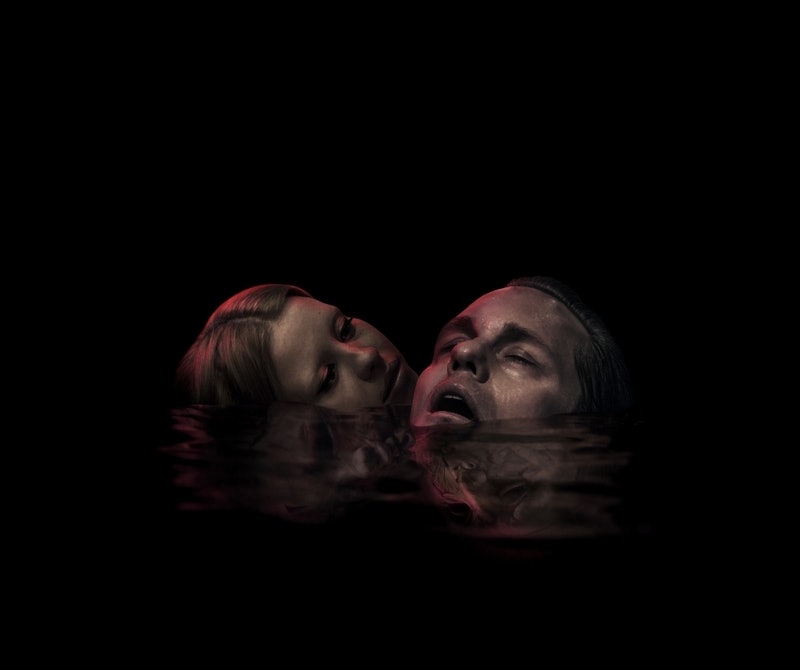
For all the mind-altering psychosexual horrors they harbor, the nightmarish new worlds of Brandon Cronenberg outwardly resemble our own.
It’s in digging beneath the surface — of his characters’ civilized exteriors as much as their quietly sinister surroundings — that strange and twisted realities start to erupt.
That’s because, across all three of the features that Cronenberg has written and directed to date — Antiviral, Possessor, and this week’s Infinity Pool — the filmmaker has been as driven to probe questions of human id and impulse as he is to explore how near-futuristic technology could unleash our species’ fiercely repressed dark side.
“Identity is a tricky concept,” the 43-year-old filmmaker, speaking to Inverse about his latest sci-fi head-trip out of the Sundance Film Festival, where it premiered last week to strong, enthusiastically disturbed reviews ahead of a wider theatrical release Friday.
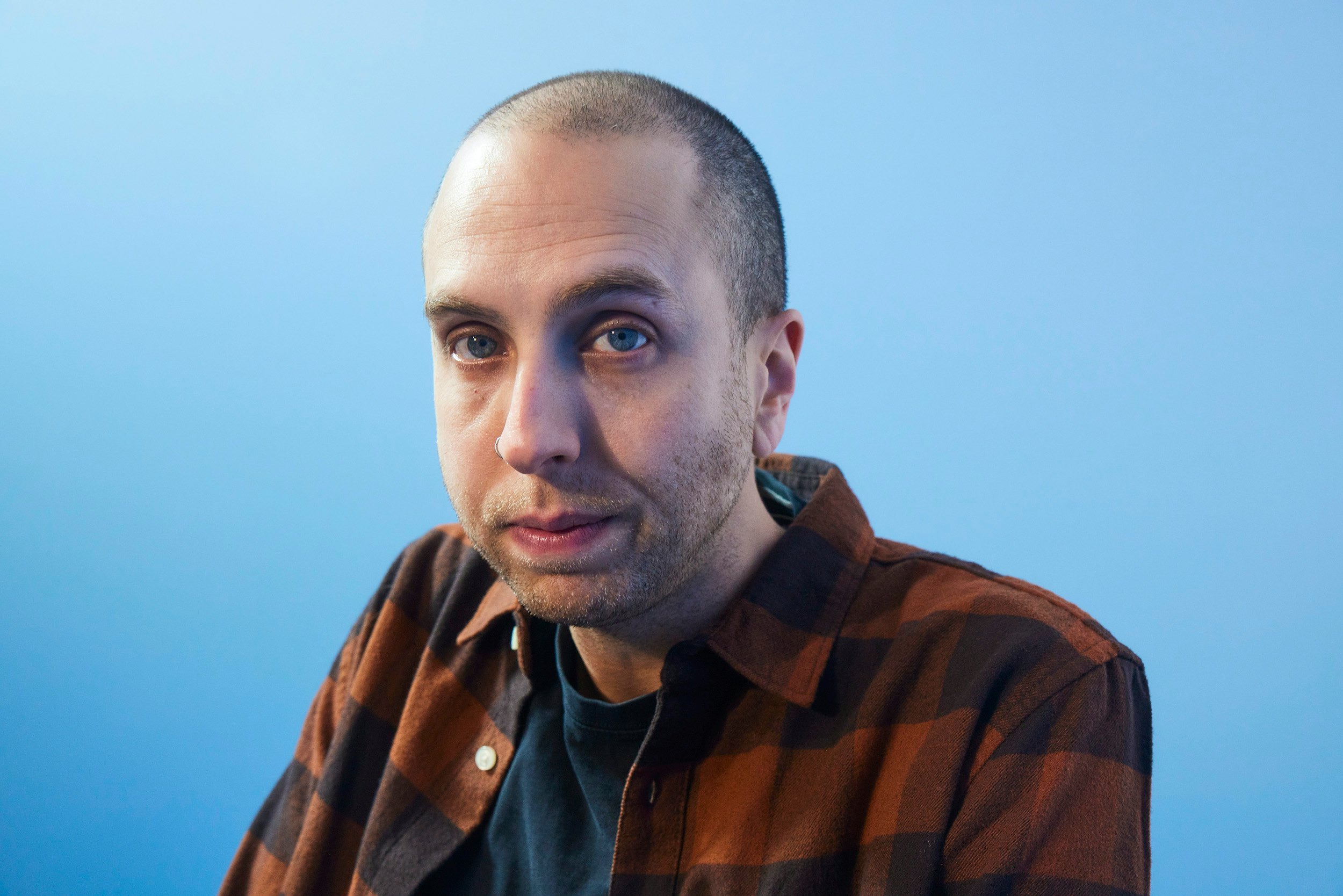
Cronenberg means this both politically and in a basic, scientific sense. “Identity is something that we essentially impose on ourselves,” he continues. “The brain creates a feeling of self. It's almost a controlled hallucination. We are each this chorus of ideas and influences. I think much of that comes externally, through ideas we’re infected with through our context, and much of it comes internally through our own biology.”
The son of body-horror maestro David Cronenberg (whose films could also be broadly described as eviscerating dives into the collision between flesh and technology) accepts inquiries about what his own identity as an artist might owe to his famous father have been inevitable. And though he maintains that every idea he’s pursued on screen has grown organically out of his own artistic preoccupations, Cronenberg believes the coldly cerebral vein of sci-fi he operates within is also embedded so deeply in his sense of self that he can’t cleanly trace it back to a single point of origin.
“It’s a process of the brain to essentially claim certain aspects of your experience,” he says. “That’s so basic to who we are as people and how we see ourselves in a day-to-day way. But once you start to pick apart what it is to have a self, it’s this entirely neurological sensation rather than something that exists in a tangible, concrete way.”
“Weird, shifting bodies”
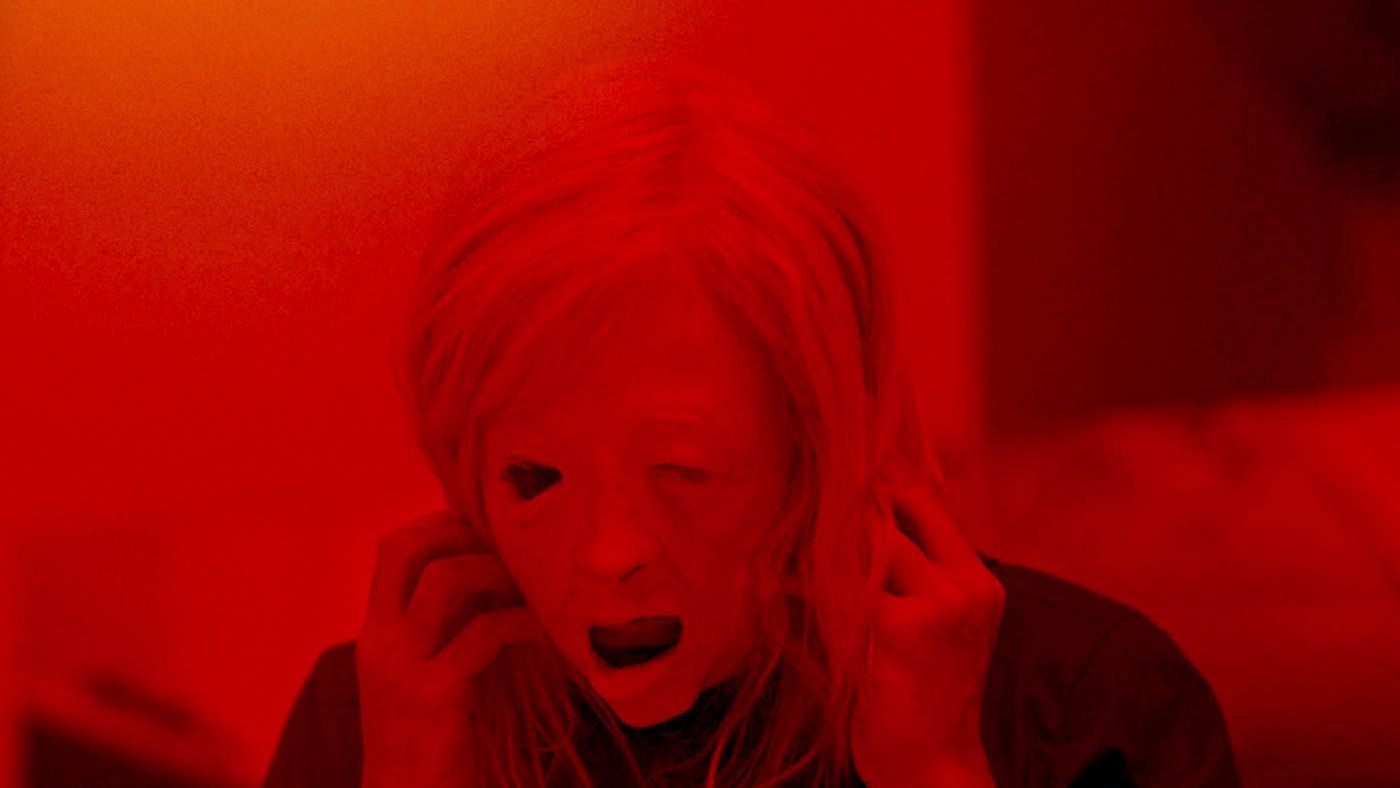
Dissections of identity abound in Cronenberg’s work. Antiviral studies the general public’s sticky relationship with fame, envisioning a future where live viruses are harvested from sick celebrities and injected into their obsessed fans. Possessor follows a corporate assassin who seizes control of other people’s bodies in order to carry out her assignments, only to find herself battling for control of her current host. Infinity Pool, starring Alexander Skarsgård and Mia Goth, dives even deeper into questions Cronenberg has been asking since the start: how much of human civility amounts to a mask, held in place by society to conceal our most brutal biological impulses, and what would it take to make that mask slip?
“In my films, I think the settings are not quite dystopian,” he says. “But they’re a bit closer to that.”
Set at a luxurious beach resort cordoned off from the rest of the tropical island of Li Tolqa, the film follows James (Skarsgård), a novelist on vacation who meets a surprisingly ardent fan in seductive resort-goer Gabi (Mia Goth). Beguiled, he sneaks out with her one night for a joyride around Li Tolqa, where the pair soon run afoul of the local authorities and discover the island’s brutal justice system. Suddenly facing execution, James is offered an alternative: for a steep price, he can take advantage of Li Tolqa’s unique “doubling” procedure, cloning himself and letting this identical double die in his place.
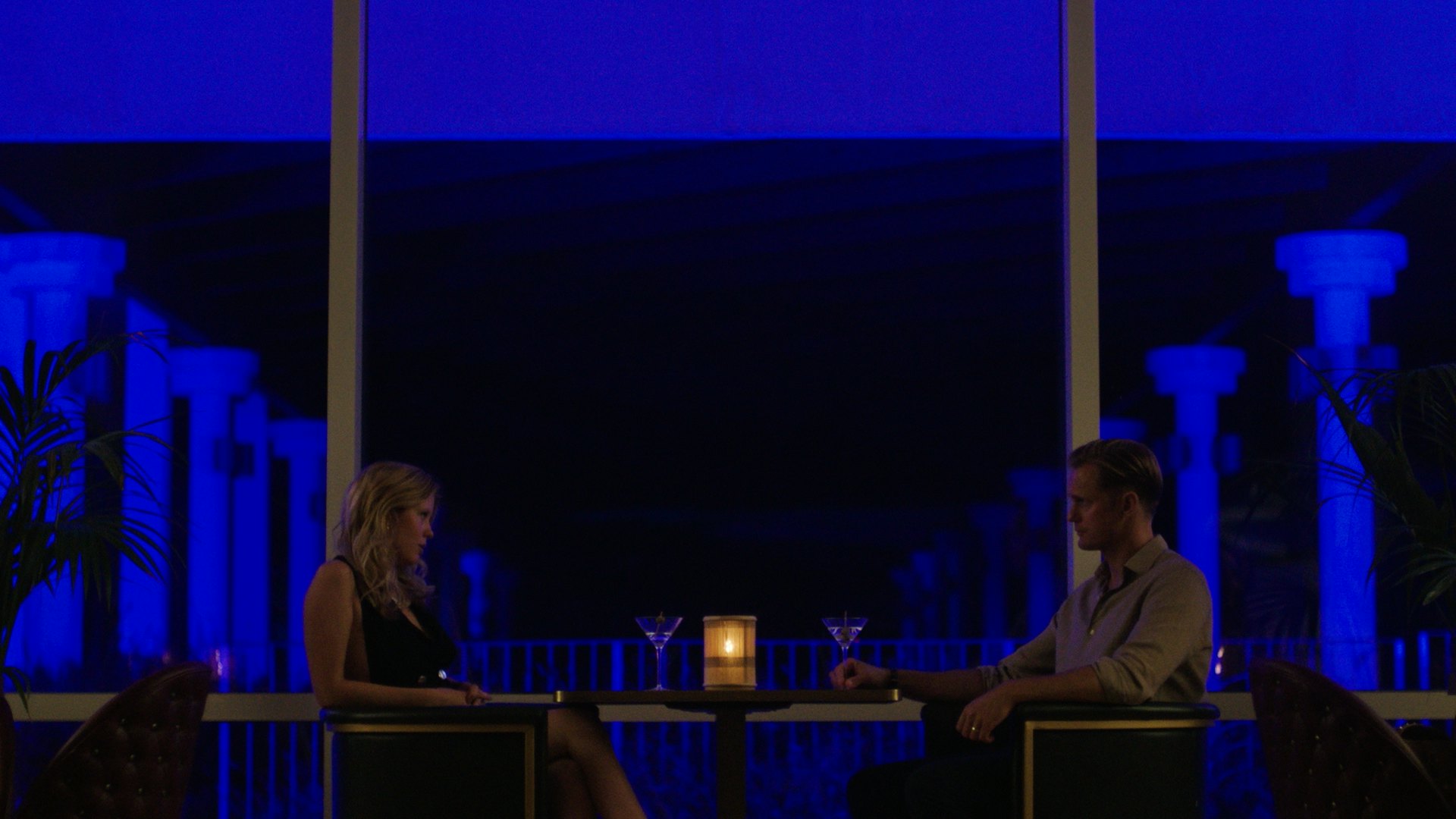
The initial seeds of Infinity Pool were planted 20 years ago, when Cronenberg visited a resort in the Dominican Republic, much like the one depicted in the film. What he found there unsettled him. “You didn’t see any of the surrounding country when you were being bussed in,” he remembers. “After driving through the dark, they dropped you directly into this resort compound surrounded by a razor-wire fence, and you weren’t able to leave. There was a weird Chinese restaurant, in this fake town you could go shop in without actually leaving the resort. At the end of your stay, they would bust you back in the day, and you would see this incredible poverty butting up against the resort.”
The contrast was “quite horrible,” Cronenberg reflects. “But it was also such a weird dream of a place, because it was like you hadn’t actually entered the host country. You were in this Disneyland alternate universe of a place that had grown up in the Dominican. That seemed, to me, a good setting for a story about people who aren’t operating with conventional consequences.”
This experience lingered in the back of his brain until 2014 when Cronenberg wrote a short story about a fictional, alternate-reality country in which people could execute their doubles. “It wasn’t meant to take place in a real Eastern European country, but tonally this fever dream of an Eastern Bloc state appealed to me as a setting,” he said.
When the project moved ahead after Possessor, filming took place in Hungary and Croatia, where both countries’ histories of Communism and brutalist architecture seeped into the story. The resort where Infinity Pool shot — the Amadraia Park resort in Šibenik — dates back to the Communism state, and the police headquarters where the doubling procedure takes place was created at a Communist-era power station in Budapest.
Probing humanity’s dark side
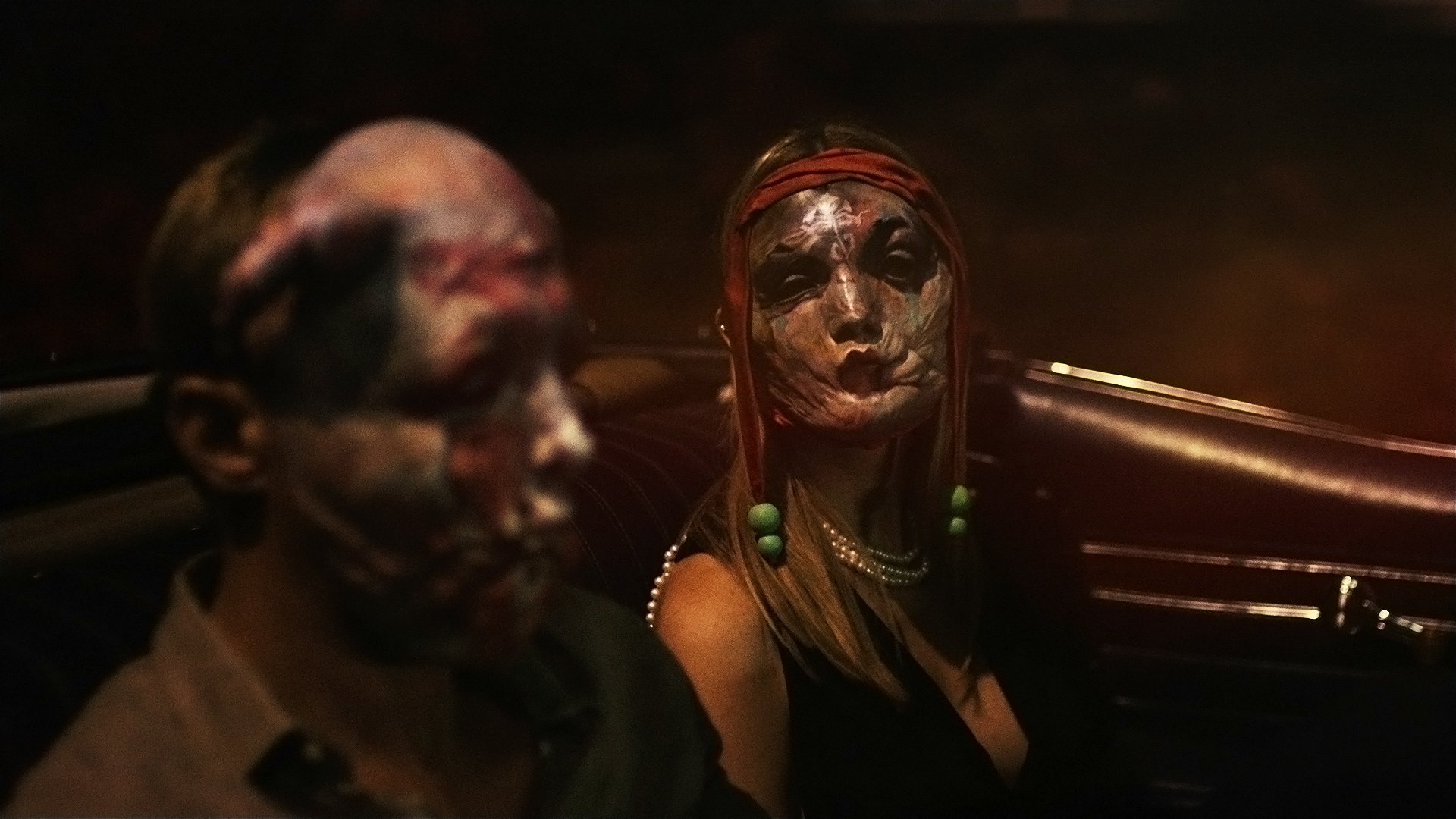
Possessor drew inspiration from the real-life mind-control experiments of Spanish doctor Jose Delgado, whose work across the 1950s and ’60s involved stimulating people’s brains electrically with implanted, radio-equipped wire electrode arrays. Conducting research on bulls, monkeys, and humans in hopes of controlling emotions and other behavioral functions, Delgado is remembered, often controversially, as the father of the brain chip, which made him a source of fascination for Cronenberg amid conceptualizing Possessor’s high tech.
For Infinity Pool, which keeps the specifics of Li Tolqa’s doubling procedure more opaque in order to embed the audience with the perspective of foreign visitors discovering it, Cronenberg was more influenced by the works of English science-fiction novelist J.G. Ballard, especially his later novels Cocaine Nights and Super-Cannes. Exploring the intersections of human psychology and sexuality with emerging technologies and mass media, Ballard’s fiction is distinctive in focus and provocative in tone. His 1973 novel Crash, about a group of individuals sexually aroused by car crashes, was adapted in 1996 into an acclaimed, flesh-and-metal psychodrama by David Cronenberg.
Though the younger Cronenberg politely sidesteps comparisons to his father, including here, Ballard is an inspiration they clearly share. One of his long-time dream projects, now in the works as a limited series, is an adaptation of Super-Cannes, published in 2000, which delved into the sinister psychology of residents living in an affluent research-residential community. Published four years earlier, Cocaine Nights similarly explored the murderous underbelly of a dystopian resort community; both novels informed Infinity Pool, which Cronenberg wrote before securing the rights to Super-Cannes. “Infinity Pool isn’t exactly like Super-Cannes, but it’s thematically and tonally related to that era in his writing,” says the filmmaker, acknowledging that he kept Ballard’s later fiction close at hand while writing the script.
“Specific to Infinity Pool, Ballard keeps coming back to this theme of human beings as animals, repressing their animal impulses in the name of civility and the ways in which that psychology can resurface and mutate, given a certain context,” adds Cronenberg, reflecting on the prescience of such Ballardian conditions in modern times.
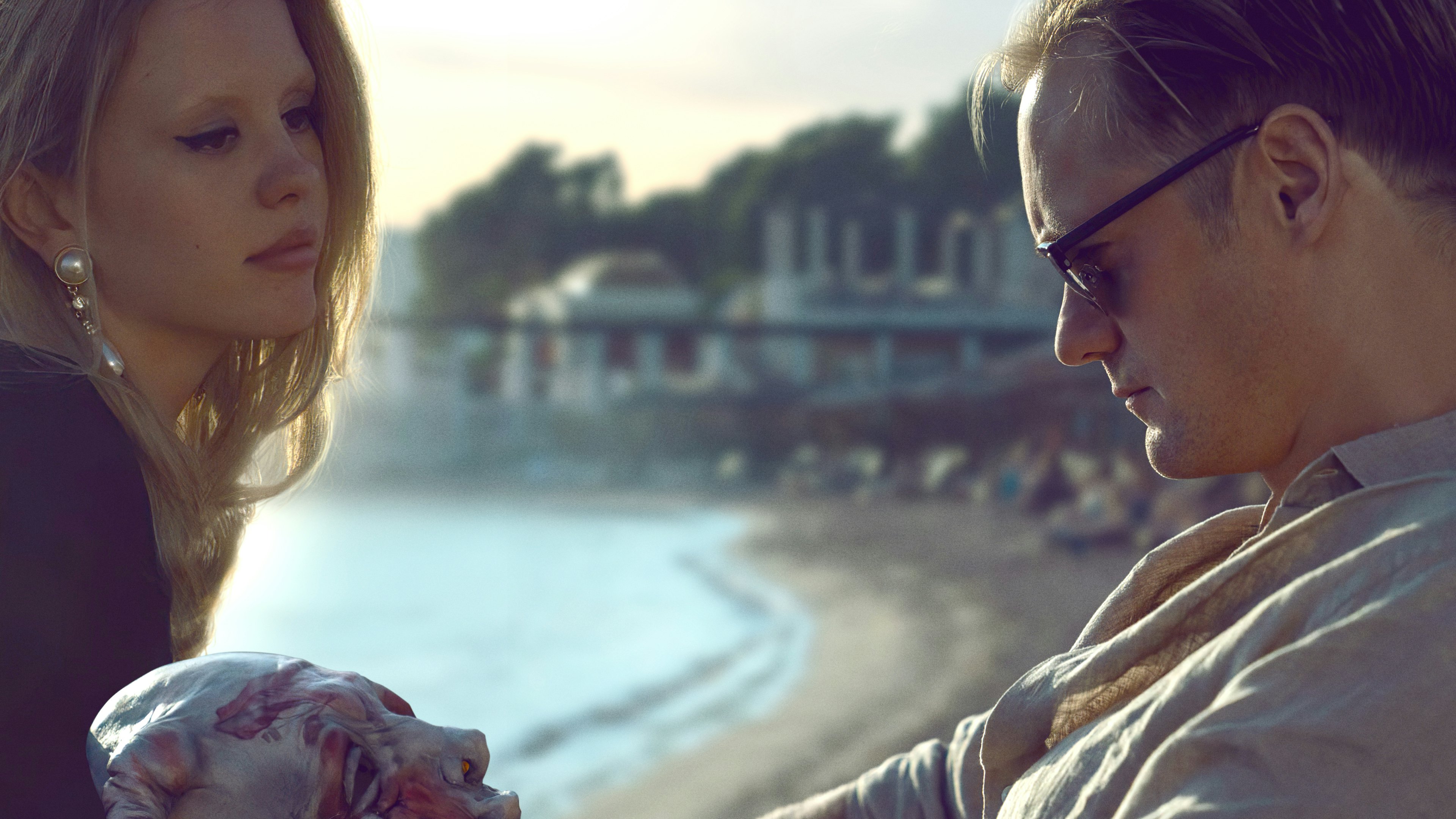
Infinity Pool is unsparing in its critique of the tourist economy, and the savagery that Americans traveling abroad are capable of inflicting on indigenous peoples and cultures they neither respect nor understand. Through Li Tolqa’s premium-cost doubling procedure, the rich can outsource the consequences of their immoral actions to less privileged bodies, escaping punishment for a price even as the native peoples they victimize are afforded no such luxury.
It’s telling that, when letting their ids drive them through displays of brutal violence and debauched sexuality, the vacationers don so-called “Ekki” masks — eerily deformed visages used by locals as part of a ceremony called “the summoning” — to conceal their identities, surrendering to what they might call their inner savage. But Cronenberg says that Infinity Pool explores humanity’s capacity for depravity on an existential level, rather than merely the amorality of the wealthy and insulated.
“When you’re free from responsibility, that’s when these impulses and that side of humanity can resurface,” he says. “It’s not just that it can happen in the context of great wealth. You see it all the time in the context of war, for instance. When conventional social rules fall apart, people can be incredibly brutal.”
It’s for this reason that Cronenberg set Infinity Pool in an idyllic location and chose to center the story around Skarsgärd’s character of James, whose downward spiral coincides with his sudden discovery of its underlying darkness. “The interesting contrast to me is to put brutality in a context where it isn’t so obvious,” he says.
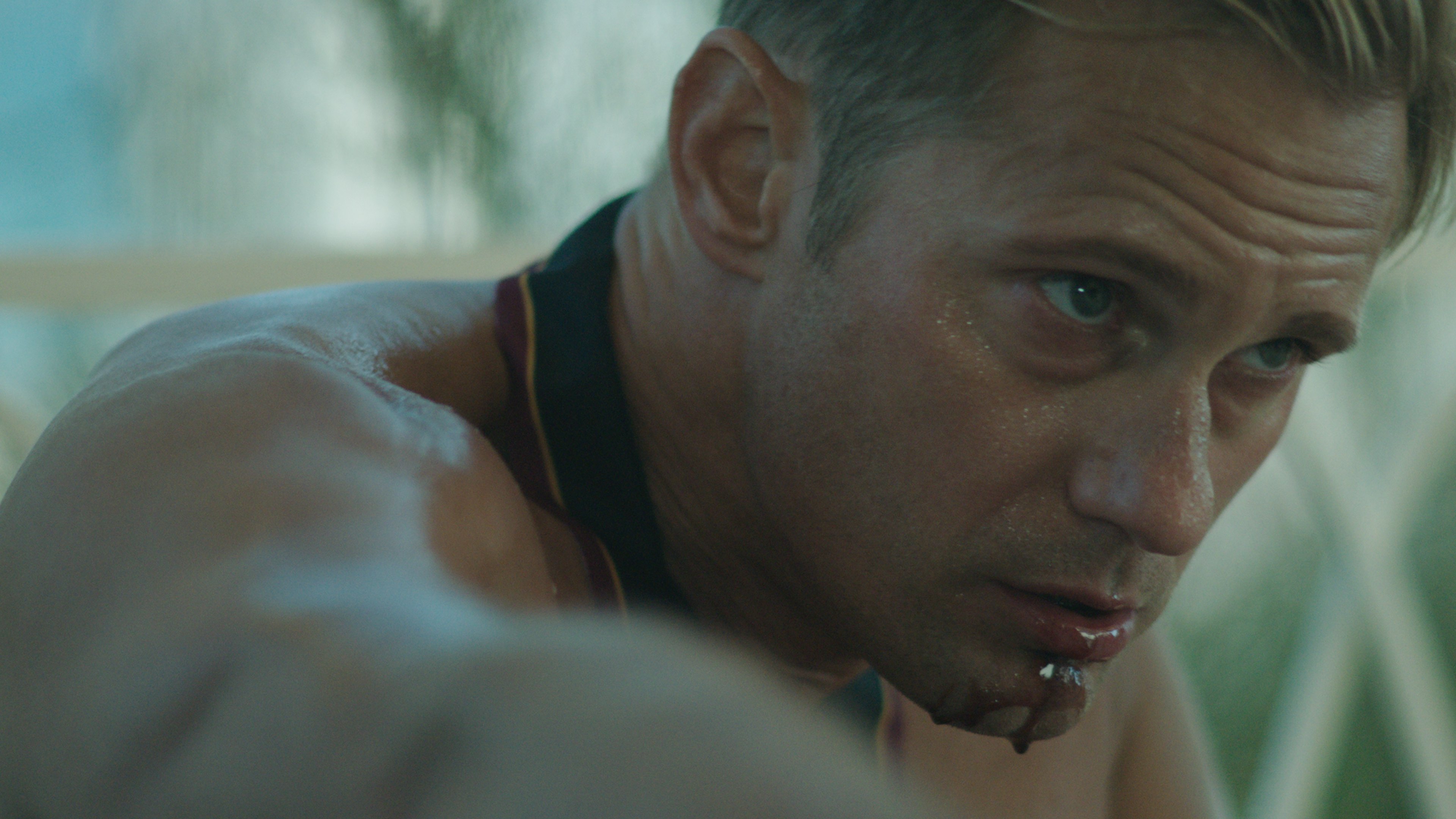
That contrast was what drew lead actor Skarsgärd to the project. Infinity Pool is only the latest in a series of recent roles that have found the actor — and his stunt double, Mark Slaughter, whom he’s worked with since The Legend of Tarzan — pushing physical limits to portray even more savagely violent alpha males than the kinds he rose to fame playing on HBO series like True Blood and Big Little Lies. In Jeremy Saulnier’s mythopoetic Hold the Dark, he played a man who unleashes his inner wolf after the death of his son; military drama The Kill Team cast him as a sociopathic sergeant overseeing atrocities in Afghanistan.
Most transformative was last year’s The Northman, in which Skarsgärd played a Viking berserker out for revenge, immersing himself in period research and packing on 20 pounds of muscle ahead of filming. “It’s a theme in the scripts I’ve been drawn to,” he acknowledges. “Being a civilized, modern-day human being in our society in order to function there, but having these more animalistic, primal urges, that feels very relatable to me and, I think, to most people. I find that dichotomy quite interesting.”
“I can’t escape being cold, wet, naked, and in a lot of pain” — Alexander Skarsgärd
On Infinity Pool, one of the most challenging scenes for Skarsgärd — a naked fight to the death against a clone of himself that walks on all fours and wears a dog collar — was shot at night in Hungary, where temperatures fell below -1 °C amid light snowfall. “He was so game,” recalls Cronenberg. “Nothing was challenging with Alex because he’s such a lovely guy and such a talented actor. It’s not a small film, but it’s still an indie film, and so there were time constraints and some pressure to do a lot of this extreme stuff very quickly or in the cold. He just completely embraced all of that.”
Ironically, Skarsgärd says, he’d first read the script for Infinity Pool while filming The Northman’s climactic fight sequence, which involves another naked duel to the death (that one versus Claes Bang, in a volcano). “It was just before Christmas in northern Ireland and also freezing out; Mark [Slaughter] and I were miserable out there, shooting that,” says the actor. “It was a week of very intense nights for a sequence I was incredibly excited about shooting. We were physically in a lot of pain that week, and I was reading the script for Infinity Pool.”
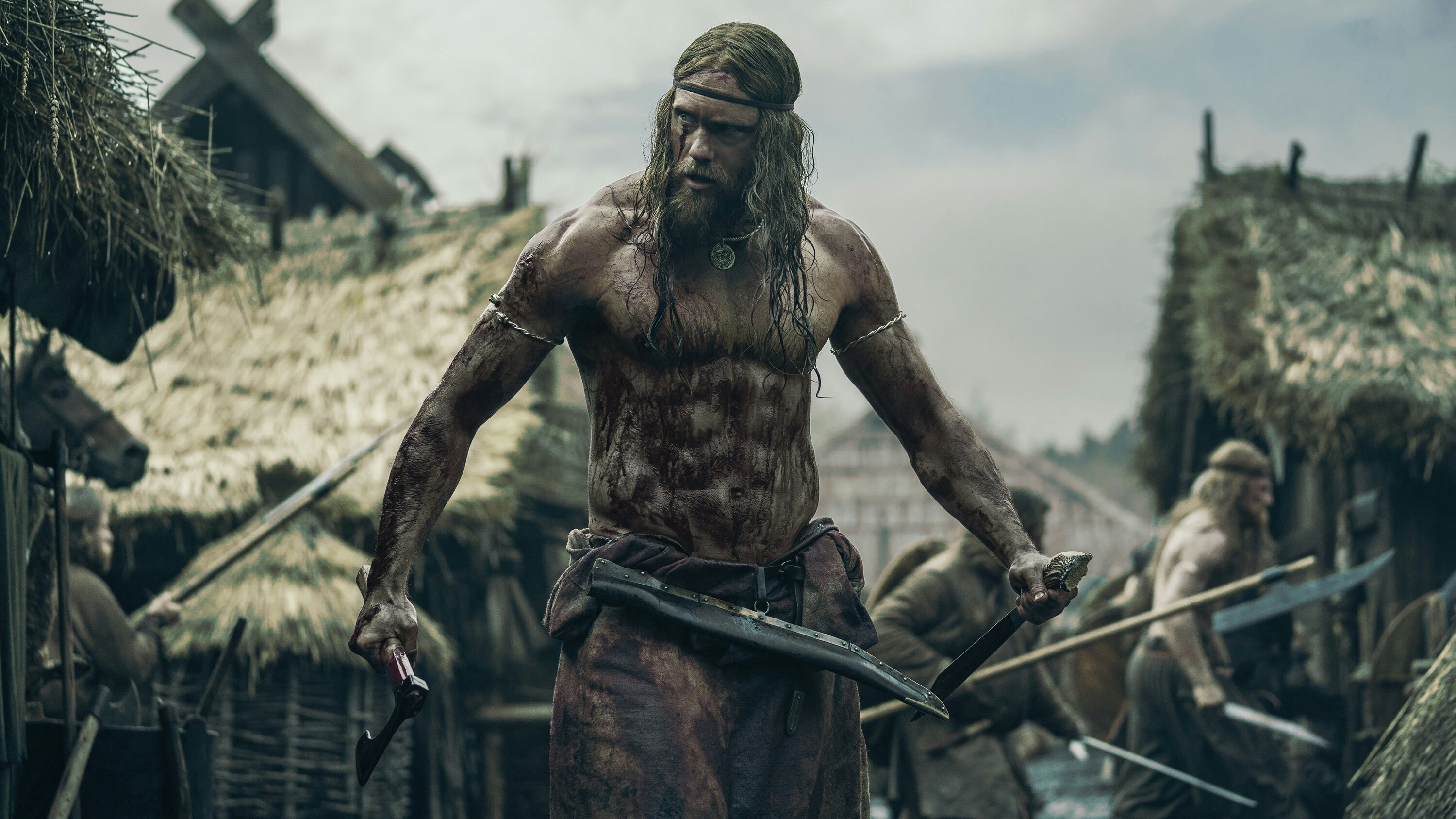
Immediately, it piqued his interest. “The title alone sounds exciting, as we’re freezing in Ireland in December, as did the fact that it took place at this tropical resort,” Skarsgärd recalls. “I was like, ‘Mark, I’ve found a fantastic job for us next. We’re going from this cold, wet nightmare of a set to a tropical island.’ Cut to a year later, and we’re both butt-naked in Hungary, it’s snowing outside at 4 in the morning, and we’re doing this crazy scene. For some reason I can’t escape being cold, wet, naked, and in a lot of pain on my sets. And poor Mark gets dragged into all these experiences.”
Reflecting on the experience of shooting Infinity Pool, Skarsgärd calls it one of the more rewarding creative collaborations he’s had. “Brandon is not what you expect when you watch his movies,” says the actor. “You might think you’re going to meet someone in an insane asylum. But he’s the sweetest, most humble, generous, kind man I’ve ever worked with — maybe because through the writing process he gets it out. It’s his therapy.”
Cronenberg is similarly complimentary of the actor. “He pushed himself so incredibly far and gave us this amazing wealth of material,” he says. “And then when we went to edit it, we could really pick and choose what the tone of that was going to be, how he was going to deform himself.”
Infinity Pool is now in theaters.







